Critical Thinking Normal Governance and Civics Worksheets for Ages 4-9
6 filtered results
-
From - To
Ignite your child's love for learning with our Critical Thinking in Governance and Civics worksheets designed for ages 4-9. Our carefully crafted printables stimulate young minds by teaching foundational aspects of society, government, and citizenship. Through engaging activities, children will develop analytical skills, enhance problem-solving abilities, and foster a deeper understanding of community roles and responsibilities. Perfect for both classroom settings and at-home learning, these worksheets provide an enriching experience, encouraging kids to think critically about the world around them. Help nurture informed and thoughtful future citizens with our comprehensive educational resources!
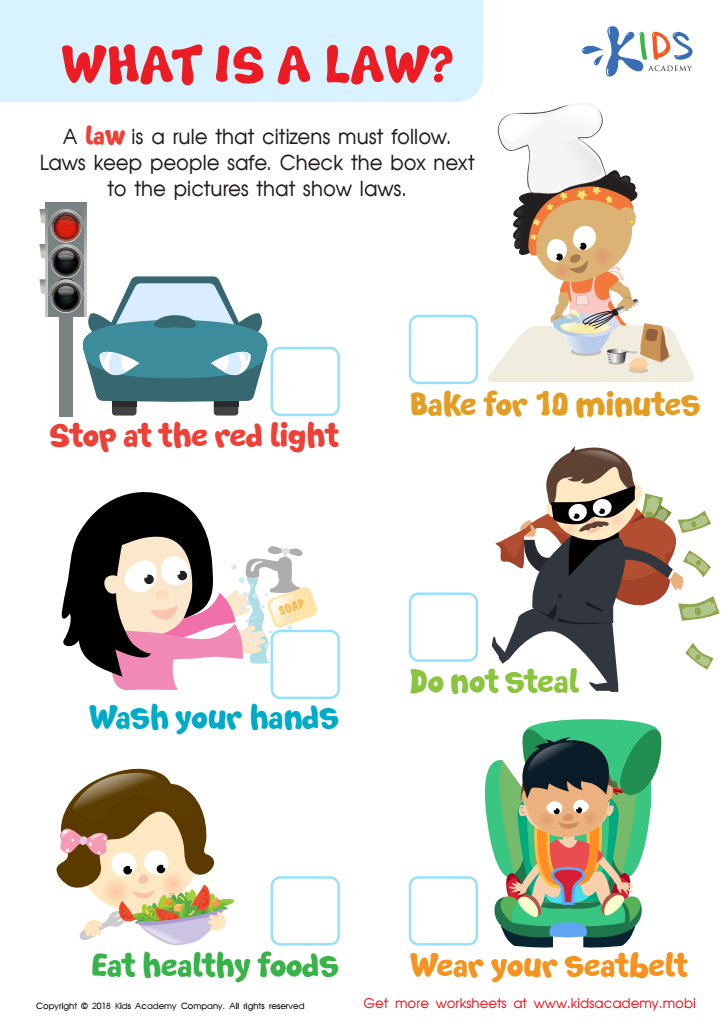

What is a Law? Worksheet
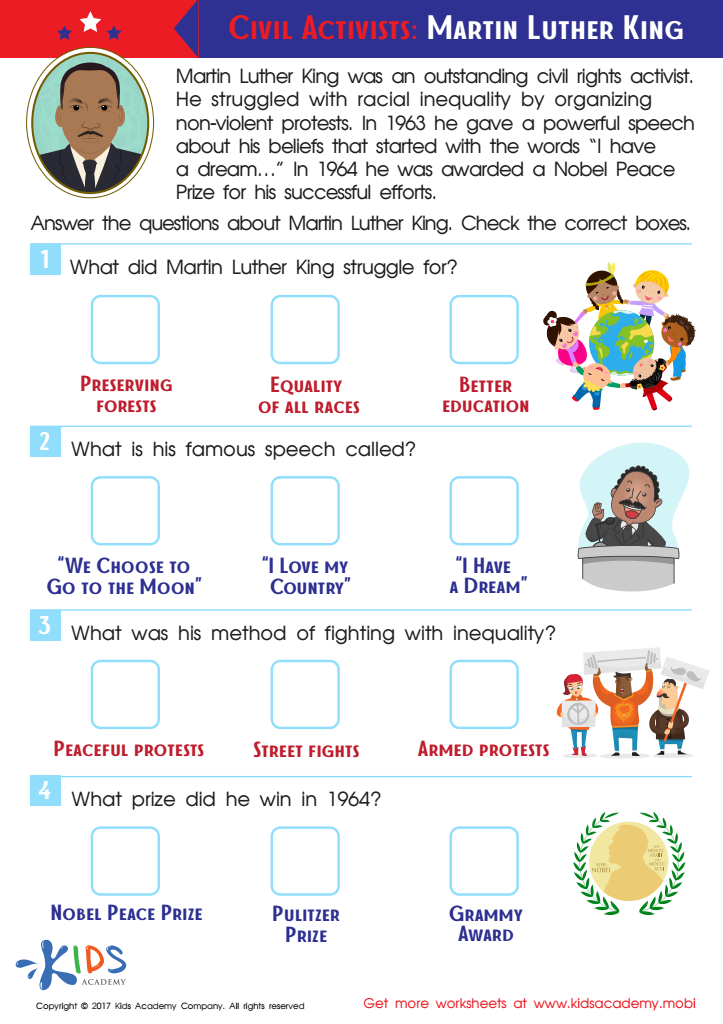

Martin Luther King Worksheet
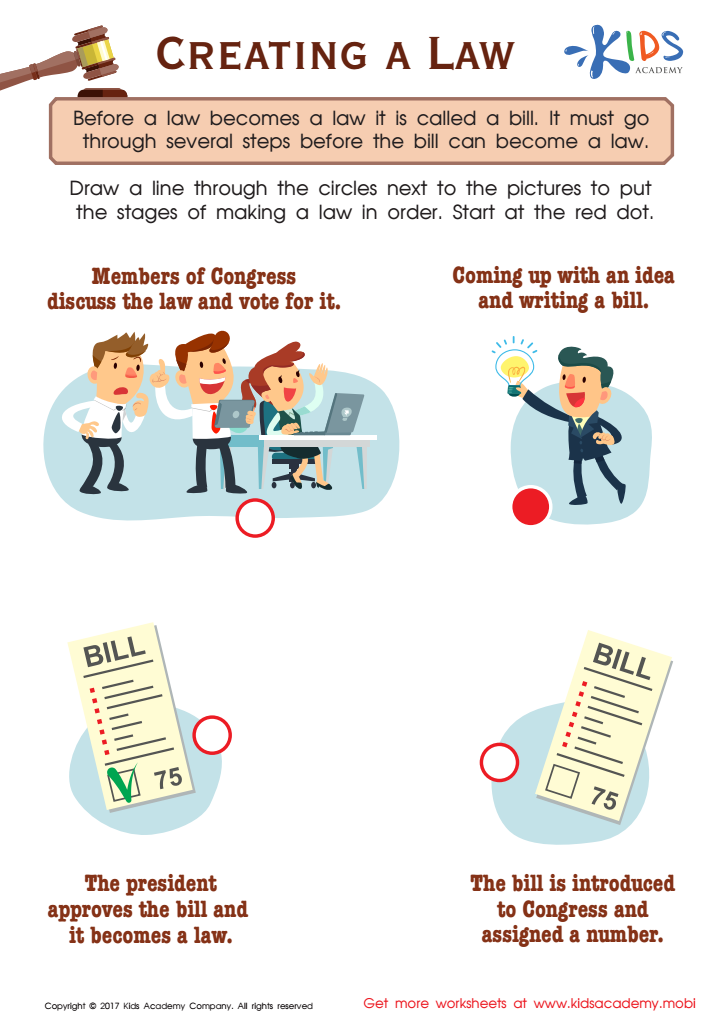

Creating a Law Worksheet
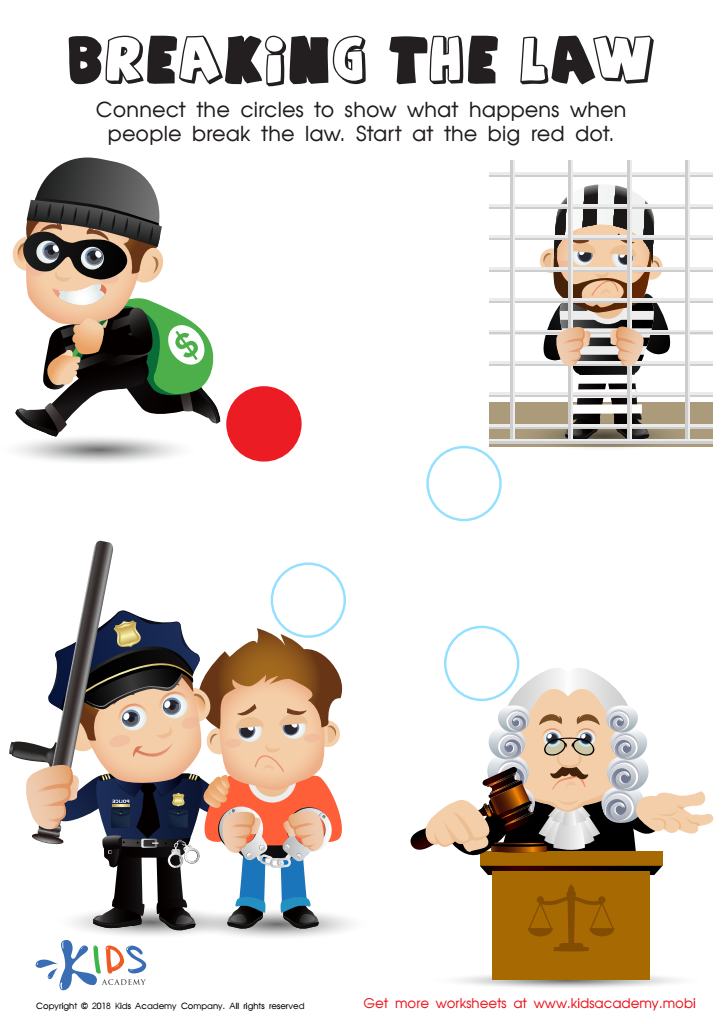

Breaking the Law Worksheet
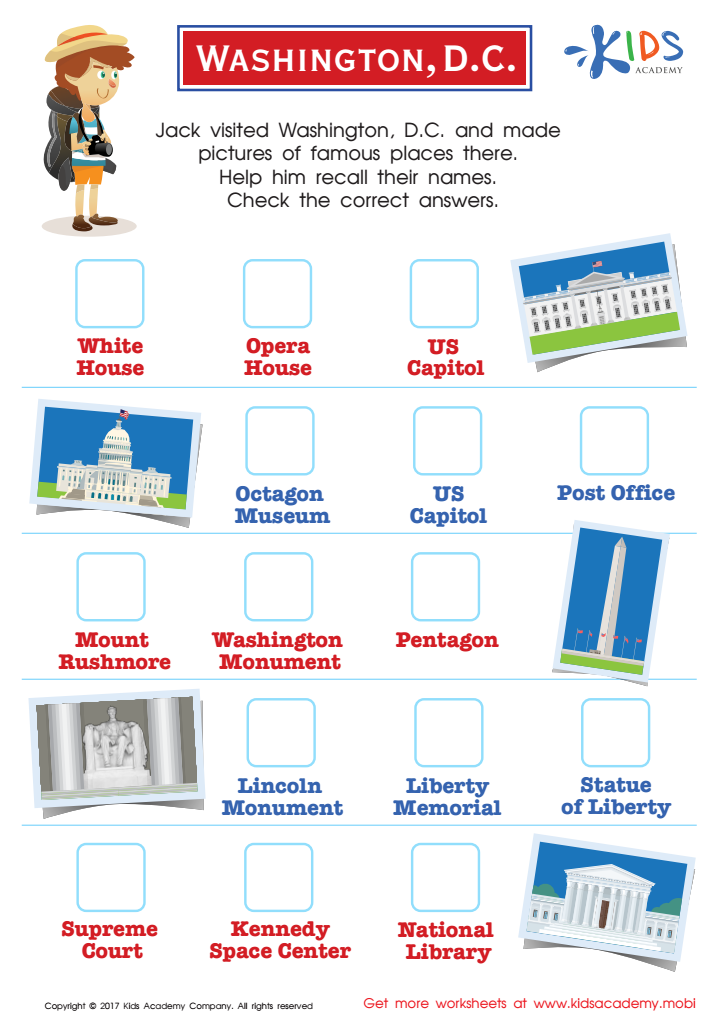

Washington D.C. Printable Worksheet
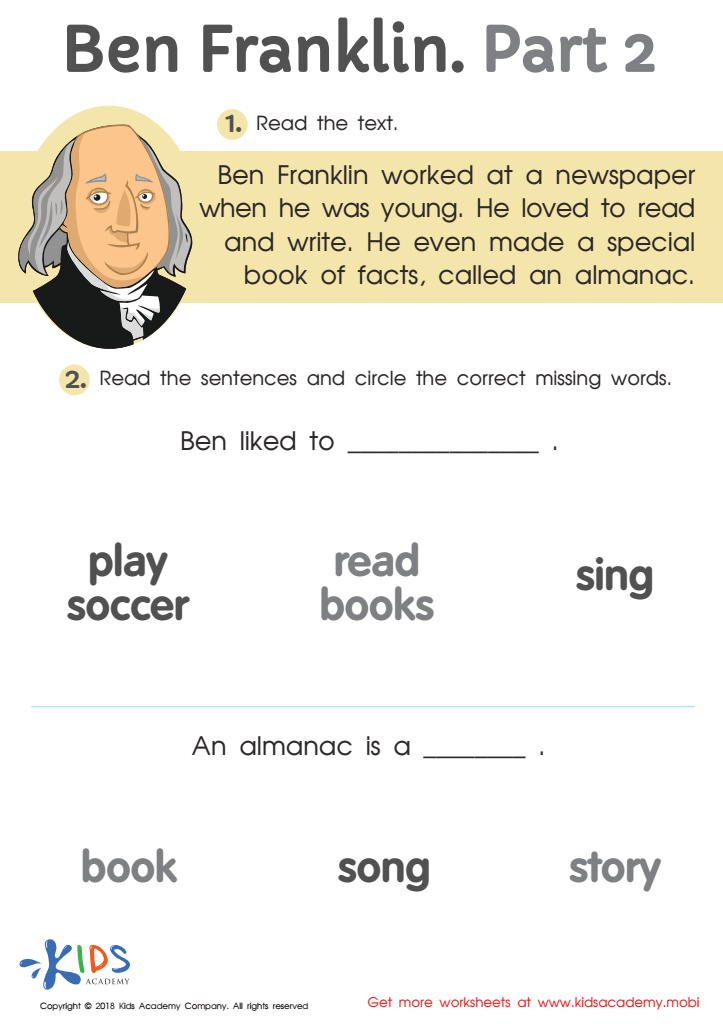

Ben Franklin Part 2 Worksheet
Parents and teachers play a crucial role in shaping young minds, and instilling critical thinking, normal governance, and civics from ages 4-9 is essential for fostering well-rounded, informed, and responsible future citizens.
Critical thinking enables children to analyze situations, make thoughtful decisions, and solve problems effectively. By nurturing these skills early on, we empower children to ask questions, seek evidence, and develop independent thought processes. This foundation supports academic success and equips children to navigate complex social and ethical issues throughout life.
Understanding normal governance and civics introduces children to the principles of democracy, rule of law, and their roles as members of a community. Early exposure to civics education helps children appreciate the importance of participating in democratic processes, respecting rules and laws, and recognizing their rights and responsibilities. This groundwork encourages a sense of belonging, cooperation, and civic duty.
Incorporating these elements into early education helps cultivate critical thought, ethical reasoning, and active citizenship from a young age. Parents and teachers who prioritize these areas are not just teaching children how to excel academically, but also how to thrive as conscientious, engaged members of society, ultimately contributing to a more thoughtful, just, and equitable world.
 Assign to My Students
Assign to My Students










